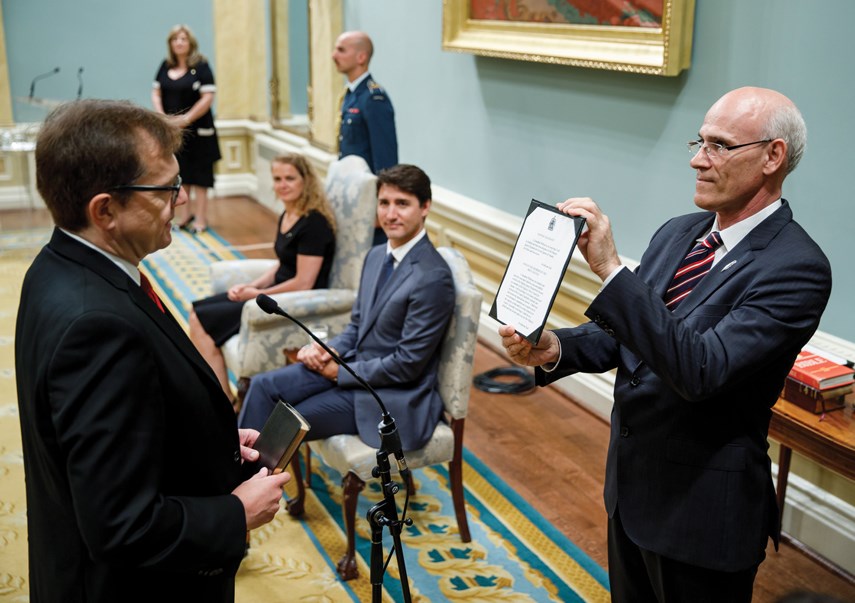North Vancouver MP Jonathan Wilkinson has been named minister of fisheries, oceans and the Canadian Coast Guard.
Wilkinson was sworn into the high-profile cabinet post Wednesday after being tapped in the prime minister’s cabinet shuffle. Previously, Wilkinson was parliamentary secretary to the minister of environment and climate change.
“(The prime minister) indicated that he felt I had been working extremely hard on a range of files in Environment Canada and I think he felt that I was someone who could bring something useful to the cabinet table,” Wilkinson said in an interview on Thursday.
The new job will come with a fresh mandate letter from the PMO, laying out what policies and priorities are expected of Wilkinson during his time in the position. That letter won’t be issued until later in the summer but Wilkinson said much of it will be around overseeing implementation of things the government has already committed to: the $1.5-billion Oceans Protections Plan, increasing the amount of marine protected area around Canada’s shores from five per cent to 10 per cent, protecting and promoting species at risk, rebuilding the operational capacity of the Coast Guard through the national shipbuilding strategy – work that is being done at Seaspan’s shipyard in his riding.
Later this year, the country’s chief science advisor will be tabling a report on sea-based fish farming, Wilkinson noted.
Wilkinson will be taking responsibility for the oceans at the same time the feds are working to see the Trans Mountain pipeline through to completion – even going so far as to purchase it from Kinder Morgan. Opposition to the project over carbon emissions and potential spills lingers but Wilkinson said the project is environmentally safe and necessary for Canada’s economy.
“We responded very thoughtfully to both of those concerns. The emissions associated with the extraction of the oil that will flow through the pipeline is considered and accounted for the in pan-Canadian framework on clean growth and climate change and the Oceans Protection Plan and the conditions that were placed on the Trans Mountain project expansion address marine traffic, they address the shipping issue, they address issues around the ecosystems such as the southern resident killer whale,” he said. “Shipping through the harbour will be safer post-implementation of the OPP than it has ever been.”
Purchasing the pipeline and yet-to-be built expansion though wasn’t on the table at the time of the approval, Wilkinson acknowledged, and he said he has had legitimate questions from constituents.
“I think it’s fair to say that nobody wanted to be in the position where the government was going to be owning, even for the short term, the pipeline. But it became the best option that was available to the government given what the province did to inject, directly and deliberately, uncertainty into the process,” he said. “If at the end of the day yes doesn’t mean yes, what does that say with respect to investor confidence?”
The federal government fully intends to sell the pipeline “and hopefully do better than what we paid,” Wilkinson said.
Several pundits have suggested the cabinet shuffle is political stratagem, raising the profile of MPs whose seats may be at risk in the 2019 election. Wilkinson is rubbishing that notion, though.
“Those who say that, I think, don’t understand the riding very well. At the end of the day, if you look at the results of the 2015 election and historically, it’s typically been a battle between the Liberal and Conservative parties. And I would tell you the Conservative party’s approach to the Trans Mountain pipeline is far less sensitive to environmental concerns than the government’s is.”



